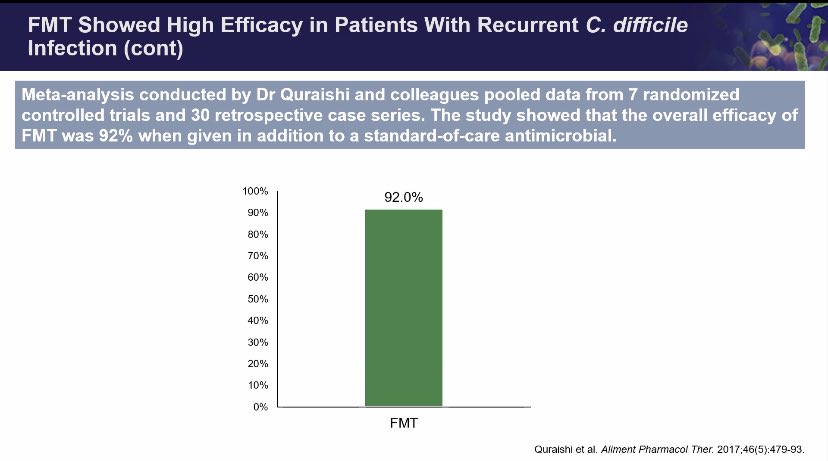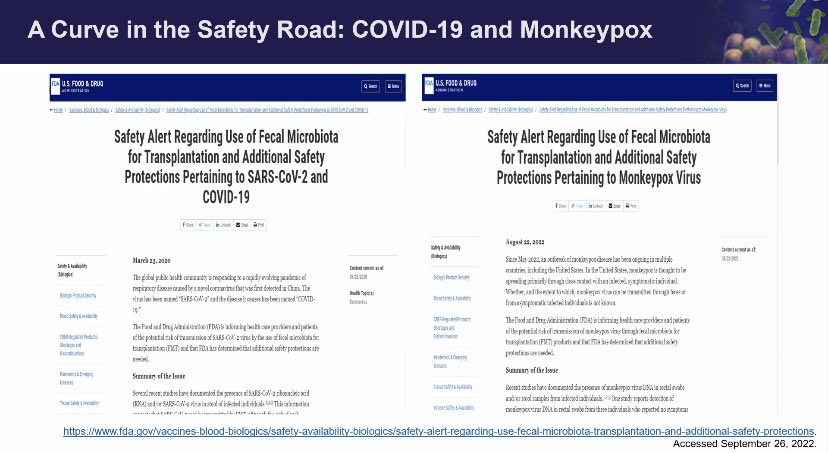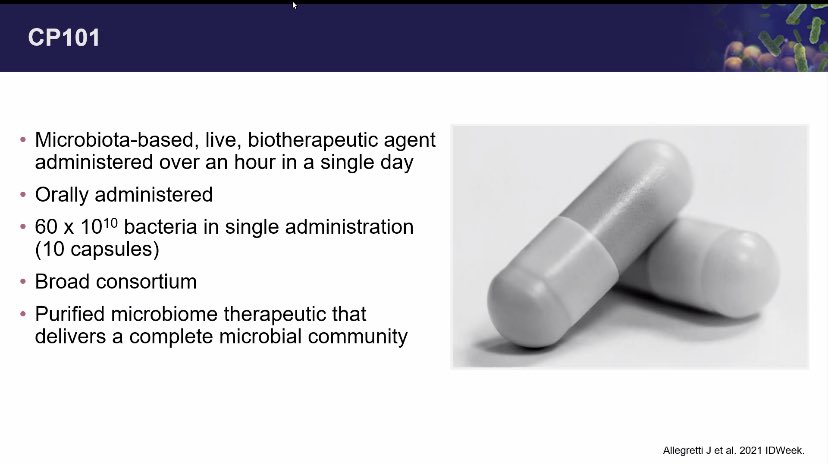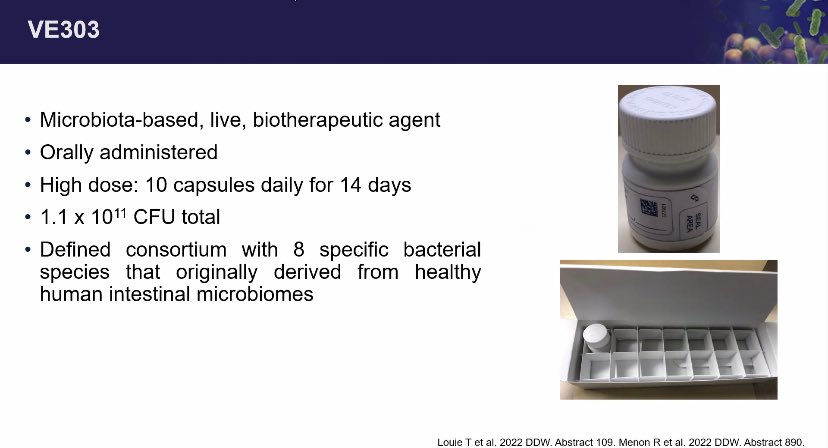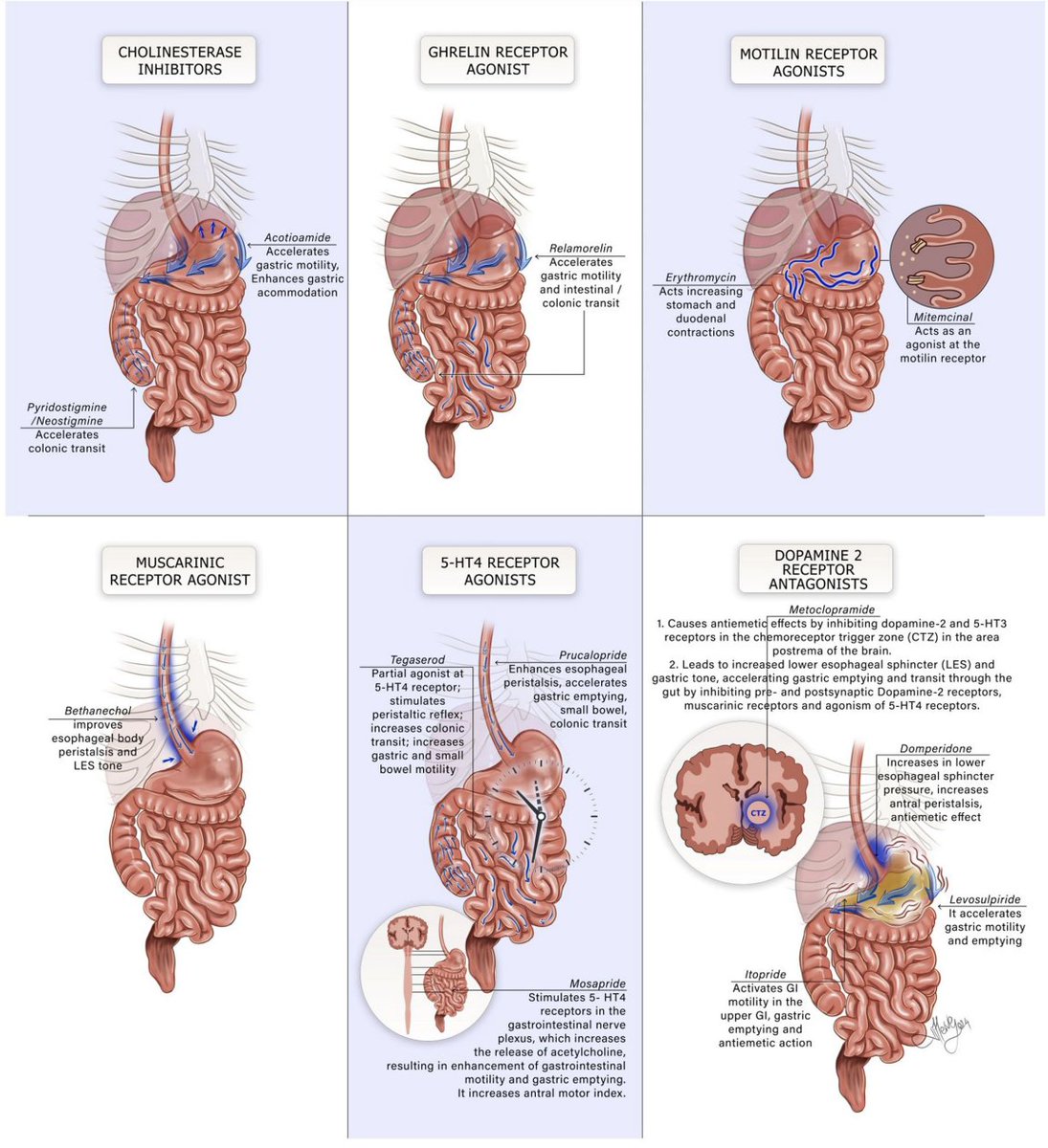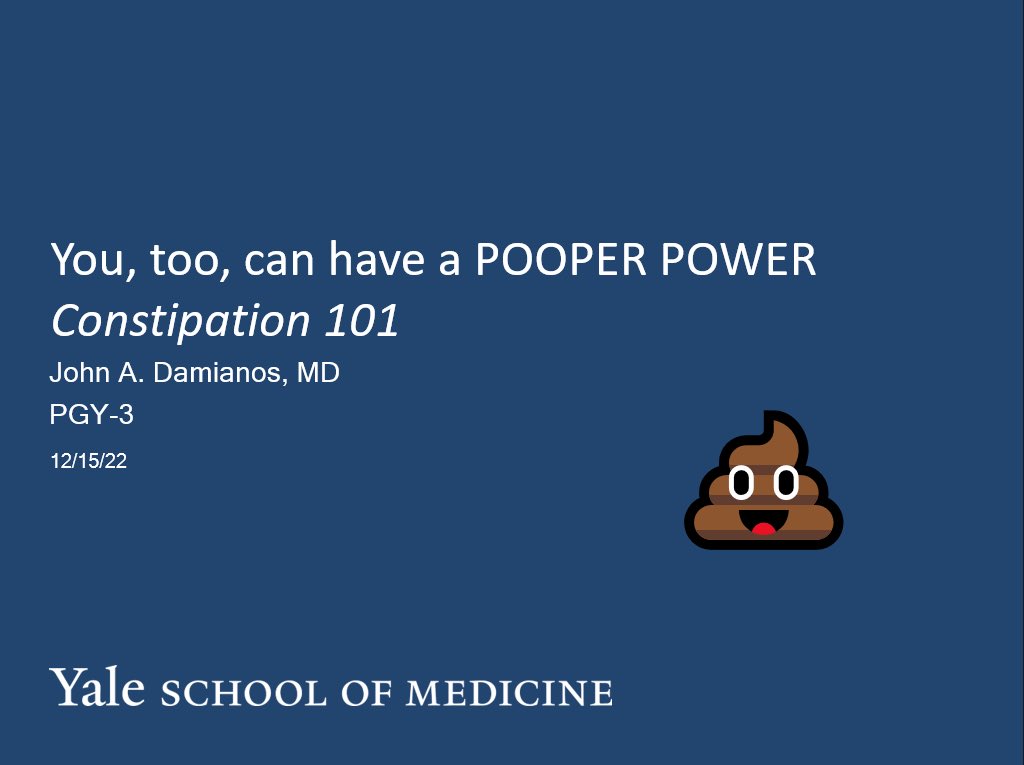Microbiota-based therapeutics in the treatment of recurrent Clostridioides difficile 🦠
@DrPaulGastro @Khanna_S @caterina_oneto
#MedTwitter #GITwitter #IDTwitter #ACG2022 #Cdiff
@DrPaulGastro @Khanna_S @caterina_oneto
#MedTwitter #GITwitter #IDTwitter #ACG2022 #Cdiff
Pathogenesis of CDI
1. Disruption of #microbiome (antibiotics) ▶️ loss of colonization resistance
2. Colonization
3. Spore ▶️ vegetative ▶️ toxin
4. Recurrence cycle or restoration of microbiota
1. Disruption of #microbiome (antibiotics) ▶️ loss of colonization resistance
2. Colonization
3. Spore ▶️ vegetative ▶️ toxin
4. Recurrence cycle or restoration of microbiota
rCDI disrupts the #microbiome 

CDI treatment @AmCollegeGastro vs IDSA/SHEA 



The vegetative form makes TOXIN. Antibiotics affect the vegetative state, NOT the spore form.
What affects the spore form? A healthy #microbiome!
Next-generation therapies address the microbiota

What affects the spore form? A healthy #microbiome!
Next-generation therapies address the microbiota


Bezlotoxumab: monoclonal antibody targeting B toxin (give during antibiotic treatment for CDI)
Contraindication: heart failure
Bez ⬇️ risk of recurrence by ~10% (NNT 10- even lower in higher risk patients!)
High risk features 👇🏽

Contraindication: heart failure
Bez ⬇️ risk of recurrence by ~10% (NNT 10- even lower in higher risk patients!)
High risk features 👇🏽


Fecal microbiota transplantation: targets the underlying pathophysiology of rCDI— dysbiosis
NOT FDA approved (considered “experimental”)
Many ways to deliver #FMT

NOT FDA approved (considered “experimental”)
Many ways to deliver #FMT


#FMT beats antibiotics for rCDI
⭐️ We should be offering our patients with rCDI therapies that restore the microbiota
⭐️ We should be offering our patients with rCDI therapies that restore the microbiota

#FMT in the guidelines 

Emerging microbiota restoration therapies for rCDI
⚠️FMT trials have lots of heterogeneity, including efficacy and safety assessments…
Enter LBPs!
⚠️FMT trials have lots of heterogeneity, including efficacy and safety assessments…
Enter LBPs!

RBX2660 also improves bile acid profile to more favorable ⬆️ secondary bile acids that inhibit spore form 

@DrPaulGastro summary: 

@Khanna_S: explain to patients that metronidazole and vancomycin are BROAD-SPECTRUM, so not only destroy C diff, but also healthy microbiota that will prevent recurrence of CDI
@DrPaulGastro: explain that antibiotics are 1 part of the treatment;the other is to restore microbiome
@DrPaulGastro: explain that antibiotics are 1 part of the treatment;the other is to restore microbiome
A (relevant!) shameless throwback to #ACG2021
https://twitter.com/john_damianosMD/status/1453101864606568451
• • •
Missing some Tweet in this thread? You can try to
force a refresh




